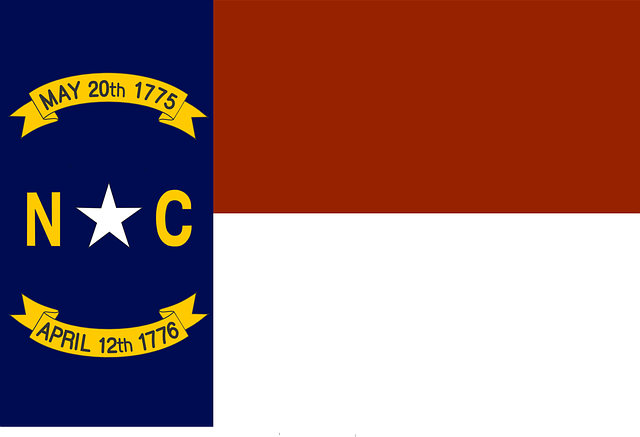In North Carolina, spam calls are a significant issue, but residents can fight back using legal protections like the Telephone Consumer Protection Act (TCPA). They can consult specialized spam call law firms or lawyers to understand their rights and implement strategies such as blocking numbers, registering for Do Not Call lists, and using filtering technology. By combining legal action with personal precautions, North Carolinians can reclaim their phone lines from unwanted calls. Selecting a reputable spam call law firm specializing in TCPA cases is crucial for effective spam call prevention.
Burnsville is a shining example of community resilience in the face of rising fraud calls in North Carolina. This article explores the pervasive issue of spam calls and how Burnsville residents are taking action. We delve into the legal framework provided by TCPA laws and effective strategies to combat unwanted calls. Additionally, we highlight success stories from local residents who have fought back against fraudulent practices, emphasizing the importance of knowing your rights and seeking expert legal help from a specialized Spam Call law firm or lawyer in North Carolina. Learn how to stop spam calls once and for all.
Understanding the Prevalence of Spam Calls in North Carolina
In North Carolina, as in many parts of the country, spam calls have become a persistent and bothersome issue for residents. These unsolicited phone calls, often advertising products or services, can be overwhelming and are a significant source of consumer frustration. According to recent reports, North Carolina ranks among the states with the highest volumes of spam calls, highlighting the need for effective solutions to combat this growing problem.
The Telephone Consumer Protection Act (TCPA) provides legal recourse against such unwanted calls. A Spam Call law firm or lawyer specializing in TCPA cases in North Carolina can guide individuals on how to stop spam calls effectively. By understanding their rights and the legal framework, residents can take proactive measures to reduce the frequency of these calls. This may involve registering on Do Not Call lists, blocking specific numbers, and employing technology tools designed to filter out spam.
The Role of TCPA Laws in Combating Spam Calls
In the ongoing battle against fraudulent and unwanted spam calls, the Telephone Consumer Protection Act (TCPA) plays a pivotal role in protecting consumers in North Carolina and across the nation. This federal law, established to curb abusive telemarketing practices, provides a framework for how businesses must conduct marketing calls. By stringent regulations, the TCPA restricts companies from making automated or prerecorded calls to individuals without prior explicit consent, significantly reducing the volume of spam calls residents receive.
Consumers in North Carolina can take advantage of these laws to combat persistent spam callers. Individuals who find themselves on the receiving end of unwanted calls can file complaints with the Federal Communications Commission (FCC) and seek legal recourse through a Spam Call Law Firm or Spam Call Lawyers in North Carolina. A lawyer for TCPA in North Carolina can guide victims through the process, helping them understand their rights and take appropriate actions to stop spam calls, ensuring a safer and less chaotic communication environment.
Strategies to Protect Yourself from Unwanted Spam Calls
In today’s digital era, unwanted spam calls have become a persistent problem, but there are several strategies to protect yourself from these incessant intrusions. One effective approach is to arm yourself with knowledge about the Telephone Consumer Protection Act (TCPA), a federal law designed to curb such practices. By understanding your rights and the legal framework surrounding spam calls, you can take proactive measures to stop them. Many people in North Carolina have successfully navigated this issue by consulting a reputable spam call law firm or lawyer for TCPA who can guide them through the process of filing complaints and seeking legal recourse when necessary.
Additionally, implementing simple yet powerful tools like blocking numbers, registering on ‘Do Not Call’ lists, and using call-blocking apps can significantly reduce the volume of spam calls you receive. Educating yourself about common tactics used by scammers and staying vigilant is key to maintaining a quieter line. Remember, how to stop spam calls North Carolina involves a combination of legal awareness, personal precautions, and collective action against these persistent irritants. With the right resources and mindset, residents of North Carolina can take charge and ensure their phone lines remain free from unwanted intrusions.
Choosing the Right Lawyer or Law Firm for Spam Call Cases
When navigating how to stop spam calls in North Carolina, selecting the right legal representation is a pivotal step. Finding a Spam call law firm North Carolina or Spam call lawyers North Carolina who specialize in TCPA (Telecommunications Consumer Protection Act) cases is essential. Look for attorneys with demonstrated experience handling similar cases, as this ensures they understand the nuances of spam call laws and have a proven track record of success.
Consider factors like their reputation, client testimonials, and the scope of services offered. Ensure they provide personalized guidance tailored to your specific situation. A reputable Spam call law firm North Carolina will help you understand your rights, explore legal options, and fight against intrusive spam calls effectively. Engaging such professionals significantly increases your chances of achieving a favorable outcome in your quest to stop spam calls once and for all.
Success Stories: How Burnsville Residents Have Fought and Won Against Fraud Calls
Burnsville residents have become adept at recognizing and combating fraud calls, showcasing a strong community spirit in defending against this modern nuisance. Many have shared their victories over spam callers, providing valuable insights into effective strategies. One common approach involves immediately blocking the unknown numbers and reporting them to local law enforcement or dedicated online platforms. By doing so, they contribute to a growing database of identified fraudulent numbers.
Additionally, residents are leveraging legal avenues available under North Carolina’s Spam Call laws and the Telephone Consumer Protection Act (TCPA). They have engaged with reputable spam call law firms in North Carolina, seeking guidance and representation when dealing with persistent or aggressive fraud calls. These proactive measures not only protect individuals but also send a powerful message to call scammers, demonstrating that Burnsville stands united against such deceptive practices.






